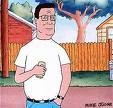- Miles and miles of roads ranging from interstate to unpaved, toll road and public alike
- The Great Lakes and their natural waterways as well as freighters churning up man-made channels; I guess the channels were there before but they were dredged and widened so man-improved is more appropriate
- Railways for freight and commuters alike
- Airports
- Oil pipelines
For all that we debate as to the role of government and how it should focus its limited resources, we are foolish to ever ignore our fundamental physical infrastructure.
This means that while we as a society debate foreign aid, defense, health care, and social policy, we still rely on immense public works to support our livelihoods. It is our nation's throbbing vascular network for people and services to travel that allows America to be awesome. It is seductively simple to hop in the car, run a few errands, and go home without thinking twice about the road we and our purchases traveled, literally and figuratively. So many products go from raw form in the United States or elsewhere on this infrastructure to places where they are processed in one or more ways, then redistributed to warehouses or wholesalers who in turn pass the products down to retailers. Which is where we drive to pick things up. Roads, rail, runways, ports, rivers, pipelines... all these critical elements have been built up to support our insatiable desire to consume, most within the last 50 years or so. Even those means of transit that have been around for over a century, like some highways or railroads, have been rebuilt much more recently.
If we didn't have reliable roads to drive from Chicago to San Antonio, or open sea lanes from Duluth to San Francisco, or (reasonably) reliable cargo and passenger flights from Orlando to Denver, much of what we take for granted in our daily lives would vanish or become unaffordable to all but the most obscenely rich. While our leaders wave flags and posture over things are primarily ideologically driven, let's hope they recognize this, as well.
